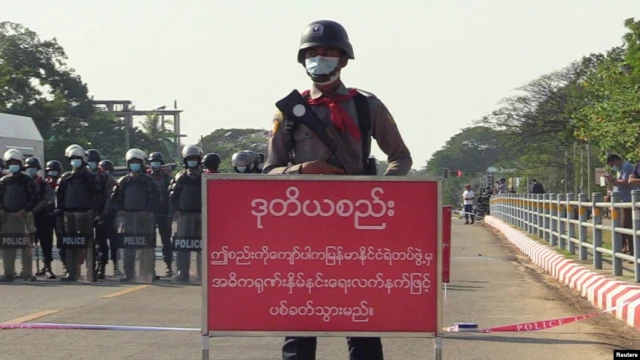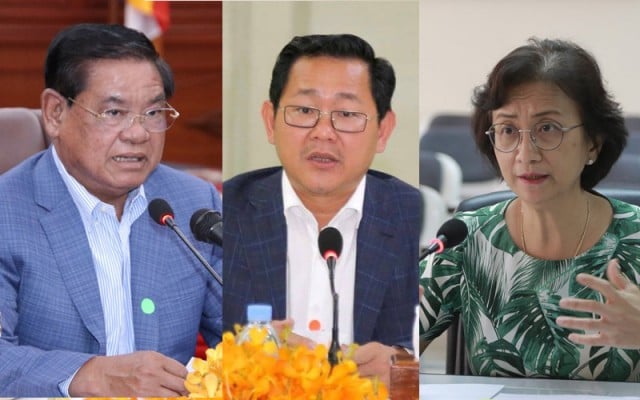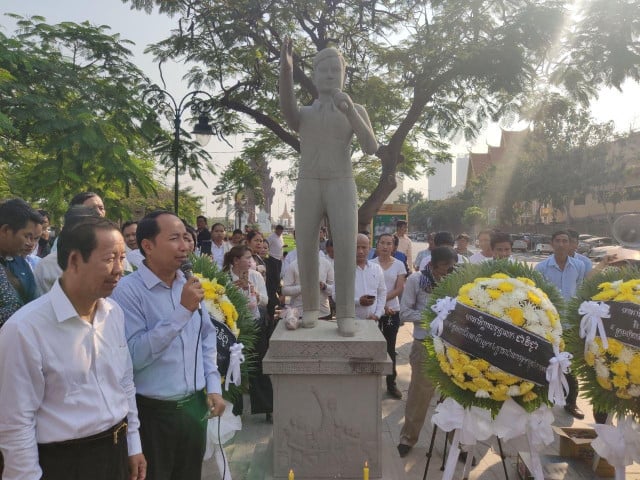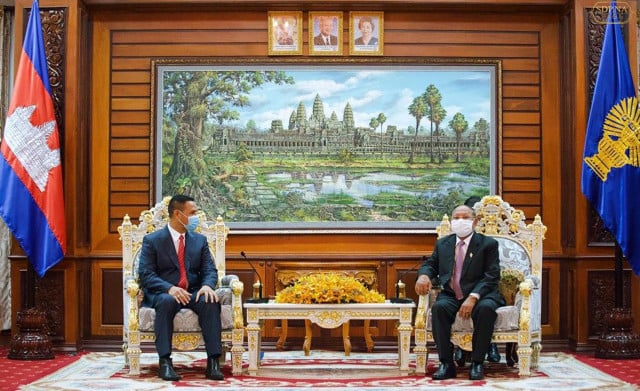Covering Myanmar is Becoming Impossible, Say Local Journalists

- By Voice of America
- October 13, 2021 2:15 PM
From the moment it seized power and ousted the democratically elected government, the military has sought to control coverage.
Access to social media and the internet was blocked, at least five local media outlets had licenses revoked, and authorities detained dozens of journalists covering nationwide protests against the junta.
In the months that followed, media outlets have been forced to restructure their operations by working online or from self-imposed exile.
Win Zaw Naing, a journalist at the Yangon-based Red News Agency, says he has been stuck inside his house for seven months, having to work almost entirely online.
“It is almost impossible to report on the ground now. I did not leave the house and I did not see anyone. I do it online, I make phone calls,” he told VOA.
From February 1 to September 27 at least 102 journalists have been arrested and at least 48 are still in custody, according to the Detained Journalist Information Facebook group and Reporting ASEAN, an organization documenting the crackdown.
Most are held under Section 505(a) of the penal code, which criminalizes content deemed to cause fear or spread false news against the government. Those convicted face up to three years in prison.
Myanmar’s military has denied restricting journalists. Spokesman Major General Zaw Min Tun said in March that the military “respects and values media freedom.” In a statement last week about American journalist Danny Fenster, the spokesperson said, “As for journalists, if they do only journalist's work, there is no reason to arrest them.”
Fenster, the managing editor of Frontier Myanmar, has been detained since May 24.
Risk factor
The increased risk of arrest has resulted in some journalists giving in, Win Zaw Naing said.
“Mainly, there is no security for journalists in Myanmar. Reporters are now prepared to say when they are arrested that they are no longer reporting,” he said.
Aye Chan Naing, chief editor of Democratic Voice of Burma (DVB), told VOA in July that reporting is a “ticket to arrest.” The independent broadcaster is among the outlets to have its licence revoked.
Advances in technology have made it possible for Myanmar’s media to keep reporting, but even that brings risk.
Aung Htut, a journalist who uses an assumed name to protect his identity, told VOA the spread of technology and mobile phone use has allowed journalists to capture more footage of atrocities than they were able to after a 2007 uprising.
He works with Burma VJ Media, a multimedia network that formed a year before the 2007 Saffron Revolution, marked by mass protests against the military government. After years of inactivity, the news organization relaunched to report on the coup.
But it’s a double-edged sword, as soldiers conduct regular checks on reporters, Aung Htut said.
“They threatened the people not to take or record any pictures and if they found the evidence, those people would be punished severely,” the video journalist said.
“They do random and routine checks on the mobiles from the users on the streets so that it even becomes a trend among the people that everyone keeps a spare phone when going out, to avoid the potential harassment,” Aung Htut said.
The journalist said the risk factor differs depending on a reporter’s location.
“For the active working journalists who remain inside Burma, they have to stay completely anonymous and must not let the neighborhood know about the works,” Aung Htut said. “Illegal or underground media are in the primary target list of the junta.
“For those who fled to the border area, which we call it ‘liberated area’ – in short, ‘LA’ – can work with the ease of mind in their daily lives,” the journalist said.
A Myanmar journalist who goes by the name Cape Diamond told VOA that despite the difficulties, reporters are determined to keep going.
“Things are getting harder and harder. Many of the journalists I know and my colleagues believe they are going to be here as long as they can be here. They want to witness what is really happening,” he said.
But he admitted some are trying desperately to evade being targeted.
“They try to publish the story, then try to leave the country, they monitor the situation, [if] the response from the government or military is OK, then they come back,” he told VOA.
It has become the norm for military to “hassle” media in Myanmar today, Cape Diamond said. In addition to searching phones and cameras, soldiers threaten reporters and have informants follow them, he said.
“They don’t really arrest you, but they hassle you. They are trying to make you feel scared,” he said. “If you want to continue what you’re doing, you cannot be too frightened.”
Media rights groups including Reporters Without Borders say the coup has set press freedom back a decade.
Until 2011 the country, formerly known as Burma, spent most of its modern history under military rule. Aung San Suu Kyi and her National League for Democracy party won enough votes in 2015 to take power.
But after the latest elections in November 2020, the military claimed unsubstantiated electoral fraud and on February 1, removed the democratically elected government and detained leader Aung San Suu Kyi and President Win Myint.
Cape Diamond says Myanmar never had "press freedom" even under Aung San Suu Kyi’s administration.
The coup has renewed focus on the power of media, he said.
“People have come to understand that journalism is really important, and they now understand that journalists are the ones who bring the voice, help raise the voice,” Cape Diamond said.
“[At] the same time the junta know how important the journalism is, that’s why they are oppressing the journalists as much as they can.”
Even though some businesses have returned to normal in Myanmar’s cities, security forces patrol in vans and trucks while soldiers are stationed at schools and religious buildings.
Although the journalist knows the risks, Cape Diamond told VOA he will keep reporting as long as he can.
“You will have a feeling you are in a war zone. When they are patrolling, they are holding their guns, pointing out in a ready position, ready to shoot.
“I will be here as long as they don’t come and shoot me in the street,” he said.















